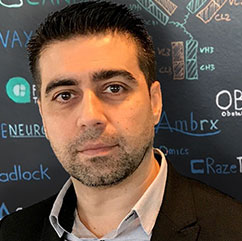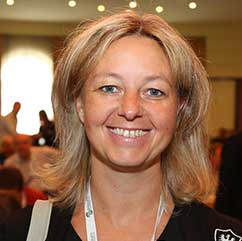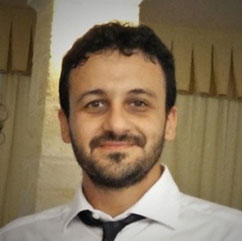This course will give you the skills to work with the founding academics to build a well-financed, sustainable spin-out company that can act as a great platform for commercialising technology and provide a financial return to the university
Why Join This Course?
The course is interactive. You will learn through case studies and role play facilitated by those who have been actively involved in building, financing and managing successful university spin-outs.
Who Should Attend?
This course is for experienced knowledge transfer managers whose portfolios include technologies that may be best commercialised in a spin-out company. We explore what sort of technologies are best commercialised in this way and the role of knowledge transfer managers in setting the initial business strategy.
Learning Objectives
- Gain an overview on the process of spinning out a company from a research institution
- Introduction to funding, especially venture capital (VC) financing
- How to manage conflicts of interest regarding scientists, founders, research institutions and TTOs
- Deepen your knowledge using interactive case studies
Course Topics
- When and why to spin-out
- Acting like an entrepreneur
- Agile approach to creating a new venture
- Building a management team and distributing equity
- Intellectual Property as the primary asset
- Strategic Financing
- What an investor looks for in potential investments
- Managing conflicts of interests
- Legal Agreements
- Joint ventures
- Creating and analysing a Term Sheet
- Programme
- Speakers
- Venue
Programme
-
Wed 27 November 2024
-
09:00 - 09:15 Course introduction
-
09:15 - 10:00 When and why to spin-out
There are basically two ways of commercialising a new technology as a result of academic research: licensing as is and adding value in a spin-out. How do you decide whether to form a spin-out: what are the criteria and when is the decision made? Here we explore the decision-making process and some bad reasons for spinning out.
-
10:00 - 10:30 Coffee break
-
10:30 - 11:45 Agile approach to creating a new venture
In the bad old days we needed a business plan to be taken seriously internally or by investors. Such plans looked lovely but were often works of fiction. Then came a new, and to most of us, a refreshing methodology called ‘lean’. This prioritised purposeful experimentation and ‘customer discovery’ over planning. In this session, explore what ‘lean’ means for us and how it shapes our role.
-
11:45 - 12:30 Bootstrap business models
We explore when it is better NOT to raise finance for a business – instead running the venture – initially anyway - as service-based consultancy that reinvests profits in the business and grows organically. There are significant upsides to this model, especially when you are unclear about the ‘killer application’ and when you think you have time before competitors will emerge.
-
12:30 - 13:30 Lunch
-
13:30 - 14:45 Acting like an entrepreneur
What does it mean to be a Commercial Manager of an tech-based entrepreneurial venture? We need to know, partly because to begin with we are often thrust into this role and partly because most ventures need to recruit such a person. So, we really need to know what role they fulfil, the right skills and attitudes and what might go wrong if there is not a good, peer-to-peer, relationship with the academic leads.
In this session we study the tactics of a one such person, learning what, how and why he prioritises to add value to a new venture.
-
14:45 - 15:15 Coffee Break
-
15:15 - 16:15 Distributing equity
Most ventures develop for a year or so before they raise any money. However, a lot of people can be involved and somehow their input has to be paid for, or at least recognised. The only currency a spin-out has is equity and it is tempting to start giving shares to contributors. This can be a good thing but mostly it is not (or is premature) especially when talking percentages.
Here we look at one case where equity is being carved up and ask who should get what and whether there are alternatives form of compensation.
-
16:15 - 17:15 Academic conflict of interest
We spend a few minutes to raise awareness of the various conflicts of interest that can occur when an academic starts their own venture without leaving their university duties behind. The purpose is more to help recognise red flags than offer solutions (though we might explore some options if we have time).
-
19:00 - 19:00 Networking dinner
-
-
Thu 28 November 2024
-
08:45 - 10:15 Valuation methods
How do you determine the value of an early stage venture? There are a number of different methods. Some are theoretical to the point of useless, some are vague but defensible while others are without any basis whatsoever but are still in use. The truth is that each method has merits and are best used in combination, but how?
In this session we study the different methods of early-stage valuation. In order to give you a better understanding, we will attempt to weave them together using a simulation.
-
10:15 - 10:45 Coffee Break
-
10:45 - 11:45 The Legal process – Due diligence, negotiations, agreements…
The legal process for forming a spin-out is far more complex than any research and development or license agreement.
There can be many separate agreements covering different aspects of the investment, the company, and the relationship with the university.
The structure of these documents can set the agenda for the negotiations and it is vital that the KTO has a clear understanding of what and who (potentially, up to four sets of lawyers) is involved.
-
11:45 - 12:45 Spin-out friendly (and unfriendly) Term Sheets
The Term Sheet is a key document that summaries the major, potentially divisive, elements of the agreement between the various parties befgore moving to the full ‘legals’. This is true of all deals but particularly important with spin-outs because the number of variables and parties is so much greater.
In this session you will learn the key elements, the do’s and don’ts and learn how to analyse and interpret Term Sheets.
-
12:45 - 13:45 Lunch
-
13:30 - 14:30 Licensing IP to your spin-off
Alongside an entrepreneurial team, Intellectual Property is one of the core assets in any new venture. It serves as a deterrence to imitators, should the venture become successful, and gives investors assurance that they will have a monopoly position and a healthy return on their investment. It also acts as a non-compete clause from the academic founders themselves.
However, spin-outs are fragile so we need to take greater care when licensing to a new venture in case it fails. In this session we examine the terms under which IP should be licensed to a spin-out.
-
14:30 - 15:45 How to use Proof-of-Concept (PoC) funds
Many KTOs have access to early-stage financing (PoC-type) funds and this will be the first independent source of dedicated finance. The tragedy is that this funding is very often wasted, spent either on the wrong things or the right things but in the wrong order. The key is prioritisation.
In this session we explore spending early-stage financing to greatest effect. We also show how such thinking links to investment strategy.
-
15:45 - 16:15 Coffee Break
-
16:15 - 17:15 What an investor looks for in potential investments
We invite an investor to discuss their own perspective on early stage spin-out investment, in particular what they’re looking for in an investment (product and team). We also spend some time discussing how teams form and where CEOs come from.
An opportunity to ‘test’ some of the suggestions we have made over the last couple of days.
-
-
Fri 29 November 2024
-
09:00 - 10:15 Get me the money!
What are the sources of spin-out funding and how you go about getting it?
The journey starts with internal and ‘soft’ PoC funds and possible ‘bootstrapping’. But most ventures quickly need more and we must tap into external sources - Angel, Seed, Series A, corporate.
What is the TTO’s role in locating, warming up and negotiating with external funders? How do you know who to accept investment from - ‘venture-investor fit’? How and when do you approach investors and to what extent are the TTO, investors and founders on the same ‘side’ of the table.
-
10:15 - 10:30 Coffee Break
-
10:30 - 11:15 Venture Capital Term Sheets
We take a brief look at the major terms and conditions that you’ll nearly always find in a venture capital Term Sheet, figuring out what they mean, why they are there, and their implications for the venture, the university and the legal process.
-
11:15 - 12:30 Preparing for exit
If all goes well then, perhaps after many years and funding rounds - the venture (and everyone in it) hopes to ‘exit’, releasing a sizeable amount of cash.
There are a two maing exit routes – a trade sale and a float. Contrary tovpopular belief, you do not know which it will be, though the former is more likely. Here we explore the reasons why.
Do we have any influence over the exit? Even if not, how can we ensure that the university receives a fair share of the proceeds? How do we prevent massive dilution in a ‘pay to play’ world? How effective are ‘anti-dilution clauses and ‘golden shares and royalties?
-
12:30 - 12:45 Course Wrap-up
-
Speakers
Venue
Venue - Double Tree by Hilton Zagreb
Ulica Grada Vukovara 269a, Zagreb 1000, Croatia
The room rate for a standard room
- Single Occupancy : Eur146.00 per night inclusive of breakfast.
- Double Occupancy : Eur158.00 per night inclusive of breakfast.
*Eur1.60 city tax is not included.
For reservation, please use this link : https://bit.ly/4dPOEIx
The link and rates will be available up to 45 days before the first arrival day , 26th October 202. By which date any additional request will be based on availability on Best Flexible Rate
Check-in & Check-out time: the standard check-in time is 15.00 hours and check-out time 12.00 hours. Should you require a guaranteed early check-in, the room needs to be reserved one night prior to arrival. If you would like to arrange this, please leave a comment in the reservation.


















































